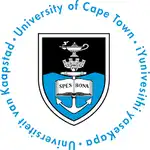UCT Medicine Admission Requirements
The Faculty of Health Sciences at the University of Cape Town (UCT) experiences an exceptionally high volume of applications for its limited number of available places. Due to the competitive nature of the admissions process, meeting the minimum criteria does not guarantee acceptance into your chosen programme. It is crucial to thoroughly consult the Faculty of Health Sciences’ section of the UCT Undergraduate Prospectus, particularly pages 41–50, for extensive details on admission requirements.
Available Programmes and Number of Places
The Faculty offers several programmes, each with a limited number of places:
- Bachelor of Medicine & Bachelor of Surgery (MBChB): 240 places
- Bachelor of Science in Audiology: 37 places
- Bachelor of Science in Occupational Therapy: 70 places
- Bachelor of Science in Physiotherapy: 70 places
- Bachelor of Science in Speech-Language Pathology: 40 places
- Higher Certificate in Disability Practice: 30 places
- Advanced Diploma in Cosmetic Formulation Science: 10 places
See Also: UCT Law Requirements
Selection Process
Prioritization of First Choice Applicants
The Faculty of Health Sciences Admissions Committee prioritizes applicants who select their desired programme as their first choice during the application process. This prioritization is essential given the competitive nature of the programmes.
Selection Categories
Applicants compete in various selection categories:
- South African Secondary School Leavers: This category includes students who have completed their secondary education within South Africa.
- SADC Applicants (International Applicants): This category includes applicants from the Southern African Development Community (SADC) countries.
- Applicants with Tertiary Results: This category includes students who have tertiary education results from UCT or other institutions.
Discretionary Places
The Dean has the discretion to allocate a small number of places, within the intake targets, on merit to the following categories:
- Repeat Applicants: Applicants who meet the prescribed minimum criteria but are reapplying.
- Applicants with Disabilities: These applicants are given consideration to ensure diversity and inclusivity within the Faculty.
Continuous Consideration of Applications
Applications are considered on a continual basis starting from the time the Faculty receives the first National Benchmark Test (NBT) results. Additionally, applicants must upload at least one set of provisional school results, which can include:
- Grade 11 final results
- Grade 12 Term 1, Term 2, and Term 3 results
- Interim academic transcript
Important Notes
- High Standard of Applications: The Faculty receives many high-standard applications, making the selection process highly competitive.
- Minimum Criteria: Meeting the minimum criteria does not ensure acceptance, due to the high level of competition.
- Consult the Prospectus: Prospective students are encouraged to consult the Faculty of Health Sciences’ section of the UCT Undergraduate Prospectus for detailed admission requirements and other relevant information.
Detailed Programme Information
Bachelor of Medicine & Bachelor of Surgery (MBChB)
The MBChB programme is highly sought after, with only 240 places available each year. This six-year programme prepares students for a career in medicine, combining rigorous academic training with practical clinical experience.
Bachelor of Science in Audiology
With 37 places available, the Audiology programme focuses on diagnosing and treating hearing and balance disorders. This programme includes both theoretical coursework and hands-on clinical practice.
Bachelor of Science in Occupational Therapy
The Occupational Therapy programme, with 70 places, trains students to help individuals improve their ability to perform tasks in their daily living and working environments. The curriculum includes anatomy, physiology, and therapeutic techniques.
Bachelor of Science in Physiotherapy
Also offering 70 places, the Physiotherapy programme trains students to rehabilitate patients with physical impairments or disabilities. The programme combines classroom learning with clinical internships.
Bachelor of Science in Speech-Language Pathology
With 40 places, the Speech-Language Pathology programme focuses on diagnosing and treating speech, language, and swallowing disorders. Students gain practical experience through supervised clinical practice.
Higher Certificate in Disability Practice
The Higher Certificate in Disability Practice has 30 places and is designed to provide foundational knowledge and skills for working with individuals with disabilities. The programme covers various aspects of disability care and management.
Advanced Diploma in Cosmetic Formulation Science
With only 10 places, this highly specialized programme focuses on the science of cosmetic product formulation. It includes both theoretical knowledge and practical laboratory skills.
Conclusion
The Faculty of Health Sciences at UCT offers a range of competitive and high-demand programmes. Given the limited number of places and the high standard of applications, prospective students must ensure they meet and exceed the minimum criteria and carefully follow the application guidelines provided in the UCT Undergraduate Prospectus. For more detailed information, applicants should refer to the prospectus and contact the Faculty of Health Sciences if they have any specific queries or require further assistance.




